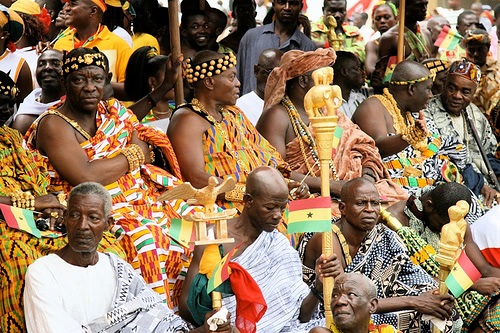
Chieftaincy: A rallying force for democratic benefits
Two weeks ago (January 14), the President of the Greater Accra Regional House of Chiefs, Nii Okwei Kinka Dowuona VI, made all of us sit up when he called on the National Peace Council (NPC) to take urgent steps to defuse the rising tension around the new voters register the
Electoral Commission (EC) intends to put together for the 2020 general election.
In an interview with this paper, Nii Dowuona VI correctly diagnosed that the rancour over the new voters register was an early warning sign of imminent conflict and, therefore, called for an urgent stakeholder engagement to defuse the tension, all in the national interest.
Yesterday, another prominent chief — the Omanhene of the New Juaben Traditional Area, Daasebre Professor Oti Boateng — also drew the nation’s attention to what he considered wrong: the widely held view that the number of votes needed to determine a winner in a presidential election is “50 per cent plus one votes”.
According to Daasebre Oti Boateng, who is a statistician and emeritus professor, the entity “50 per cent plus one votes” is mathematically incorrect, since it has two non-additive components, the first being a percentage and the second a natural number.
He, therefore, called on the EC to discharge its patriotic public duty to sound the requisite death knell for the invalid construct because if such outright constitutional misrepresentation was allowed to persist, especially in an election year, it had the potential to fan the embers of conflict, which could ultimately destroy the country’s hard-won peace and stability.
While Nii Dowuona was apt in telling all not to take the peace currently being enjoyed in the country for granted, Daasebre Oti Boateng was also spot on when he pointed out the error in the widely held view by the people that the “50 per cent plus one votes” rule was a proxy for the true constitutional provision of the country.
For us at the Daily Graphic, the wise intervention by the two prominent traditional leaders is a step in the right direction and they need to be commended.
Particularly important is the advice to political actors to exercise restraint, no matter how sensitive an issue is.
In drawing our attention to these matters, Nii Dowuona and Daasebre Oti Boateng have shown how chiefs can impact our development and democracy positively.
They have not only exuded the nobility associated with the institution but also a great deal of wisdom from the hearts of our traditional rulers.
In a country where many issues are looked at through partisan lenses, the two chiefs have clearly shown by their action that the constitutional prescription to chiefs not to engage in partisan politics is not limiting.
The 1992 Constitution places a limit on chiefs in Sub-section 276, which states: “A chief shall not take part in active party politics; and any chief wishing to do so and seeking election to Parliament shall abdicate his stool or skin.”
Nonetheless, we believe that the provision rather seeks to protect the integrity and nobility of the chieftaincy institution.
It is also enabling, and for this reason chiefs must rather take advantage of it to reposition the institution as one of "sound reasoning, to which attention ought to be paid."
The Daily Graphic therefore, commends Nii Dowuona and Daasebre Oti Boateng and prays that the chieftaincy institution will pass all the tests that come with our democracy.
We also commend all other chiefs and queen mothers who, individually and collectively, keep our communities functioning when our local authorities fall short in certain ways.
We are of the view that the members of this prestigious institution will emulate the two eminent chiefs. While not being partisan, they must be our collective good consciences.
They must draw us onto the straight path of democracy when we stray.
